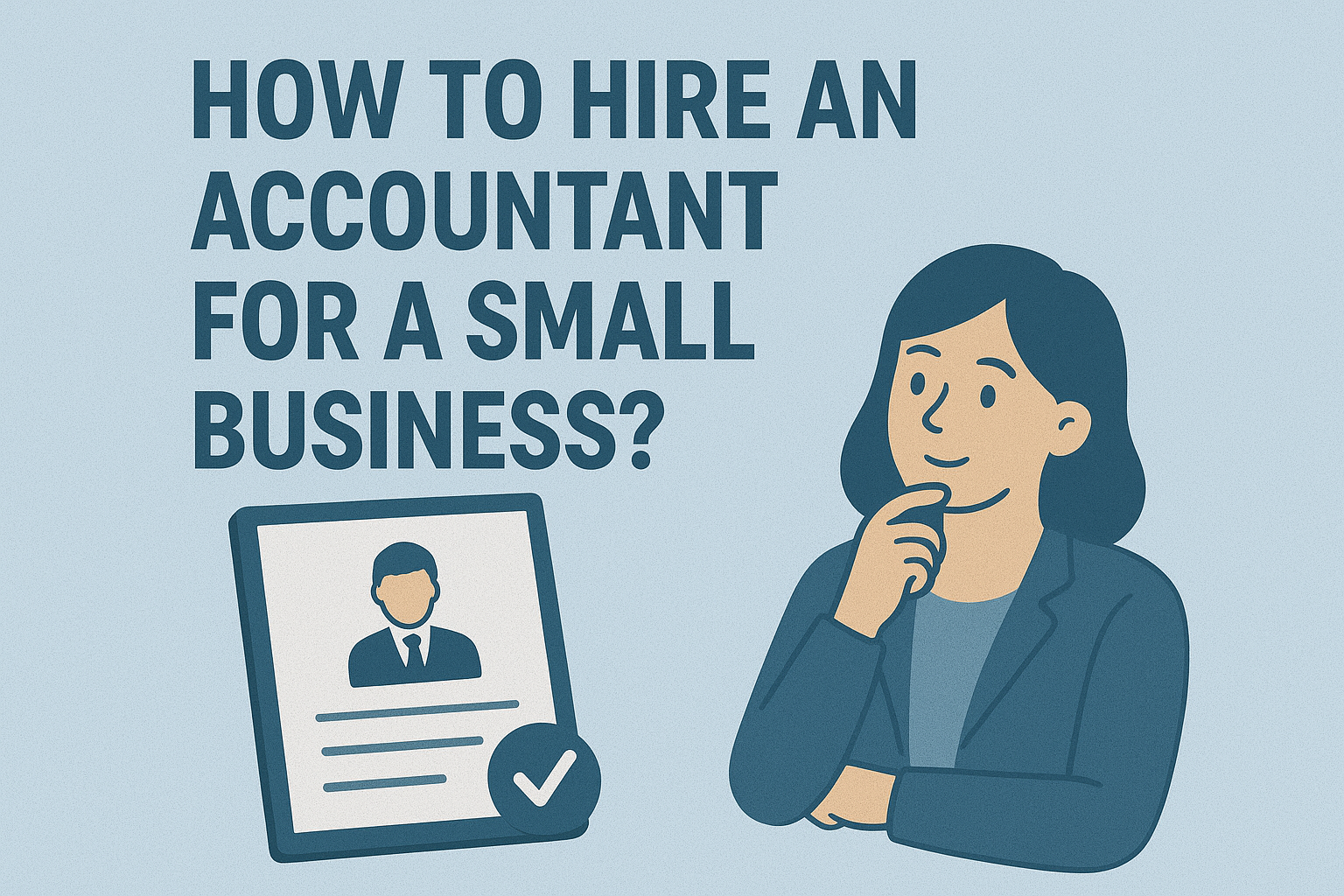For your small business, hiring an accountant is a crucial step in ensuring financial stability and tax law compliance. A competent accountant can offer insightful advice, guide you through challenging financial situations, and ultimately help your firm succeed. We will walk you through the process of choosing the best accountant for your small business in this article. After reading this article you know how to hire an accountant for a small business. Let’s dive into the details.
Suggestions to Hire an Accountant
1. Identify Your Needs
It’s crucial to determine your unique accounting demands before you start the hiring process. Take into account variables including the size of your company, the complexity of your financial activities, and the sector you work in. Do you require help with financial planning, tax preparation, bookkeeping, or all of the above?
Your search for an accountant with the appropriate experience will be aided by a clear definition of your requirements.
2. Select the Proper Category of Accountant
There are several categories of accountants, each of which has a specific area of expertise. Typical types are:
- CPAs are qualified to manage a variety of financial services, such as tax planning, auditing, and consulting.
- Enrolled Agents (EAs), these professionals represent taxpayers and offer assistance with tax-related issues.
- Budgeting, cost analysis, and internal financial management are the main areas of focus for management accountants (CMA).
- Investigating financial fraud and anomalies is a specialty area for forensic accountants.
- Choose an accountant whose experience matches the objectives and demands of your company.
3. Look for Advice
Request referrals from other small company owners, coworkers, or industry experts in your network.
You can find accountants with a solid reputation and a track record through word-of-mouth recommendations.
Read Also: The Best Way To Managing Small Business Finances
4. Verify Credentials and Qualifications
Make sure the prospective accountant is duly certified and licensed. This means that CPAs must possess a current CPA license. Verify whether they are a part of any professional associations, such as the American Institute of Certified Public Accountants (AICPA) or state-level CPA societies.
5. Speak with Potential Applicants
Set up interviews with a number of prospects to evaluate their credentials, experience, and suitability for your company. During the interview, bring up the following issues:
- What is your background in dealing with startups in my sector?
- Can you provide testimonials from previous customers?
- How do you handle customer interaction and collaboration?
- What tools and software do you use for financial analysis and accounting?
6. Talk about Charges and Billing
Make the price schedule for the accountant clear out front. While some accountants offer fixed monthly costs, others charge hourly rates. Make sure you comprehend the services that are covered by the prices and whether there are any extra payments for particular jobs.
7. Assess Communication Competencies
When dealing with an accountant, effective communication is essential. Make sure the accountant can clearly and concisely explain complicated financial concepts to you.
8. Examine their Technology Knowledge
Accountants should be adept at using accounting software and technology in the modern world.
Verify the accountant’s familiarity with well-known accounting programs like FreshBooks, Xero, or QuickBooks.
9. Check whether they are Available
Take into account the accountant’s response and availability. Particularly during tax season or when you require immediate financial counsel, you’ll want someone who can immediately address your financial worries.
10. Verify Your Sources
Please check your references before moving forward. To learn more about the accountant’s work ethic, dependability, and service caliber, get in touch with some of their references.
Final Thoughts
Hopefully, now you understand how to hire an accountant for a small business. A vital choice that could significantly affect your financial performance is choosing the correct accountant for your small business. If you have any doubts, you need a search service provider in your country. For example, if you are living in Australia, search Bas Accounting Services in Australia. Finding an accountant who not only fulfills your demands but also proves to be an invaluable partner in managing your company’s finances. This may be accomplished by analysing your requirements, conducting in-depth research, and conducting interviews. Keep in mind that a qualified accountant can support the expansion and long-term financial health of your company.



Share this Article